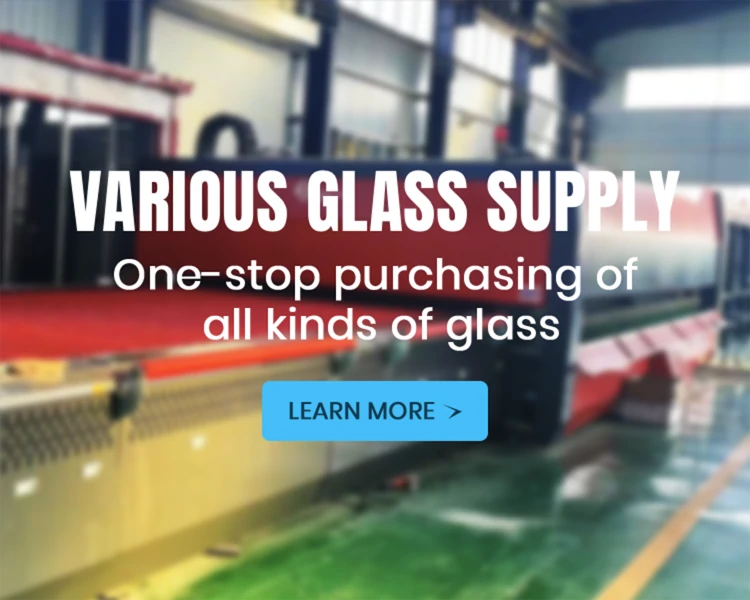The Price of Tinted Glass Factors Influencing Costs
Tinted glass has gained immense popularity in various applications, including residential, commercial, and automotive sectors. Known for its ability to reduce glare, provide privacy, and enhance aesthetic appeal, the demand for tinted glass has surged in recent years. However, the price of tinted glass can vary significantly based on several factors, making it essential to understand what influences these costs.
1. Type of Tinted Glass
The first determinant of tinted glass pricing is the type of glass selected. Tinted glass can be categorized into various types, such as standard tinted, reflective tinted, and ceramic tinted glass. Each type has unique manufacturing processes and material costs. For example, reflective tinted glass typically involves additional coatings that enhance the glass’s ability to reflect solar energy, resulting in higher production costs and, consequently, a steeper price.
2. Thickness and Size
The thickness and size of the tinted glass panels also play a crucial role in determining their price. Larger and thicker panes require more raw materials and may necessitate specialized handling during production and installation. Consequently, larger installations are generally more expensive than smaller ones. For instance, a standard window size might cost significantly less than a custom oversized panel designed for a commercial façade.
3. UV Protection and Energy Efficiency
Many consumers choose tinted glass for its energy-efficient properties. Glass that provides superior UV protection and enhanced thermal insulation often comes at a premium. Manufacturers have developed advanced technologies that improve energy efficiency, such as Low-E (low emissivity) glass, which reflects heat while allowing natural light to enter. This added benefit can justify a higher price point due to potential long-term savings on energy bills.
tinted glass price
4. Installation Costs
The cost of tinted glass does not end with the purchase of the material itself; installation services add another layer of expense. Professional installation is highly recommended, as improper handling can lead to damages and increased long-term costs. Installation prices can fluctuate based on the complexity of the project, the location, and the expertise of the installers involved.
5. Market Demand and Trends
Market trends also impact the pricing of tinted glass. In recent years, there has been a growing focus on sustainability and eco-friendly building materials. This trend has led to an increase in demand for high-quality tinted glass that meets environmental standards, which can drive prices up. Conversely, a larger supply of tinted glass, particularly from competitive manufacturers, can lead to more favorable pricing for consumers.
6. Geographic Location
Lastly, geographic location can significantly influence the price of tinted glass. Regions with higher costs of living or stricter building codes may see inflated prices due to increased operational costs for suppliers and installers. Conversely, areas with abundant suppliers might offer lower prices due to competition.
Conclusion
In summary, the price of tinted glass is influenced by various factors, including the type of glass, size and thickness, UV protection and energy efficiency features, installation costs, market demand, and geographic location. As consumers become more aware of the benefits of tinted glass, these elements will continue to shape the market dynamics and pricing strategies for tinted glass products. Understanding these factors can help consumers make informed decisions when purchasing tinted glass for their specific needs.
 Afrikaans
Afrikaans  Albanian
Albanian  Amharic
Amharic  Arabic
Arabic  Armenian
Armenian  Azerbaijani
Azerbaijani  Basque
Basque  Belarusian
Belarusian  Bengali
Bengali  Bosnian
Bosnian  Bulgarian
Bulgarian  Catalan
Catalan  Cebuano
Cebuano  Corsican
Corsican  Croatian
Croatian  Czech
Czech  Danish
Danish  Dutch
Dutch  English
English  Esperanto
Esperanto  Estonian
Estonian  Finnish
Finnish  French
French  Frisian
Frisian  Galician
Galician  Georgian
Georgian  German
German  Greek
Greek  Gujarati
Gujarati  Haitian Creole
Haitian Creole  hausa
hausa  hawaiian
hawaiian  Hebrew
Hebrew  Hindi
Hindi  Miao
Miao  Hungarian
Hungarian  Icelandic
Icelandic  igbo
igbo  Indonesian
Indonesian  irish
irish  Italian
Italian  Japanese
Japanese  Javanese
Javanese  Kannada
Kannada  kazakh
kazakh  Khmer
Khmer  Rwandese
Rwandese  Korean
Korean  Kurdish
Kurdish  Kyrgyz
Kyrgyz  Lao
Lao  Latin
Latin  Latvian
Latvian  Lithuanian
Lithuanian  Luxembourgish
Luxembourgish  Macedonian
Macedonian  Malgashi
Malgashi  Malay
Malay  Malayalam
Malayalam  Maltese
Maltese  Maori
Maori  Marathi
Marathi  Mongolian
Mongolian  Myanmar
Myanmar  Nepali
Nepali  Norwegian
Norwegian  Norwegian
Norwegian  Occitan
Occitan  Pashto
Pashto  Persian
Persian  Polish
Polish  Portuguese
Portuguese  Punjabi
Punjabi  Romanian
Romanian  Russian
Russian  Samoan
Samoan  Scottish Gaelic
Scottish Gaelic  Serbian
Serbian  Sesotho
Sesotho  Shona
Shona  Sindhi
Sindhi  Sinhala
Sinhala  Slovak
Slovak  Slovenian
Slovenian  Somali
Somali  Spanish
Spanish  Sundanese
Sundanese  Swahili
Swahili  Swedish
Swedish  Tagalog
Tagalog  Tajik
Tajik  Tamil
Tamil  Tatar
Tatar  Telugu
Telugu  Thai
Thai  Turkish
Turkish  Turkmen
Turkmen  Ukrainian
Ukrainian  Urdu
Urdu  Uighur
Uighur  Uzbek
Uzbek  Vietnamese
Vietnamese  Welsh
Welsh  Bantu
Bantu  Yiddish
Yiddish  Yoruba
Yoruba  Zulu
Zulu 

